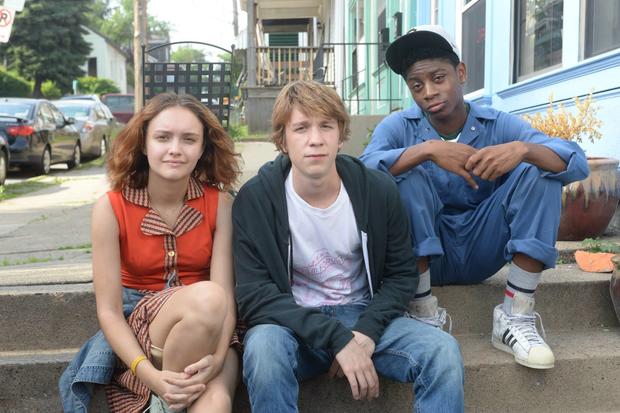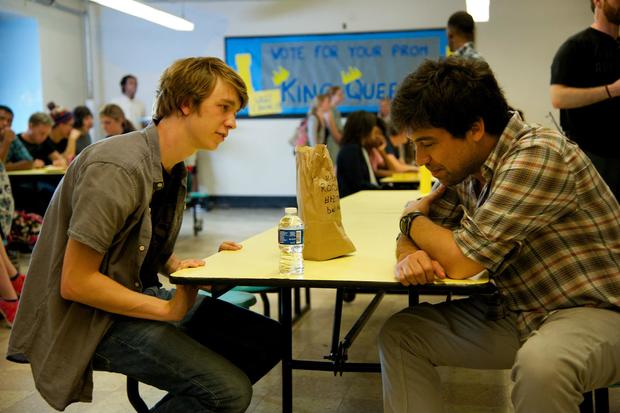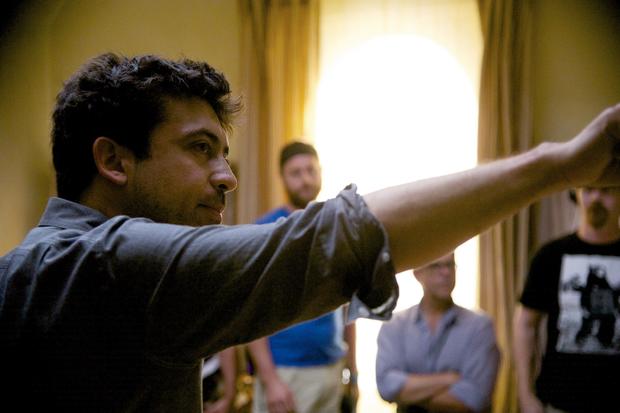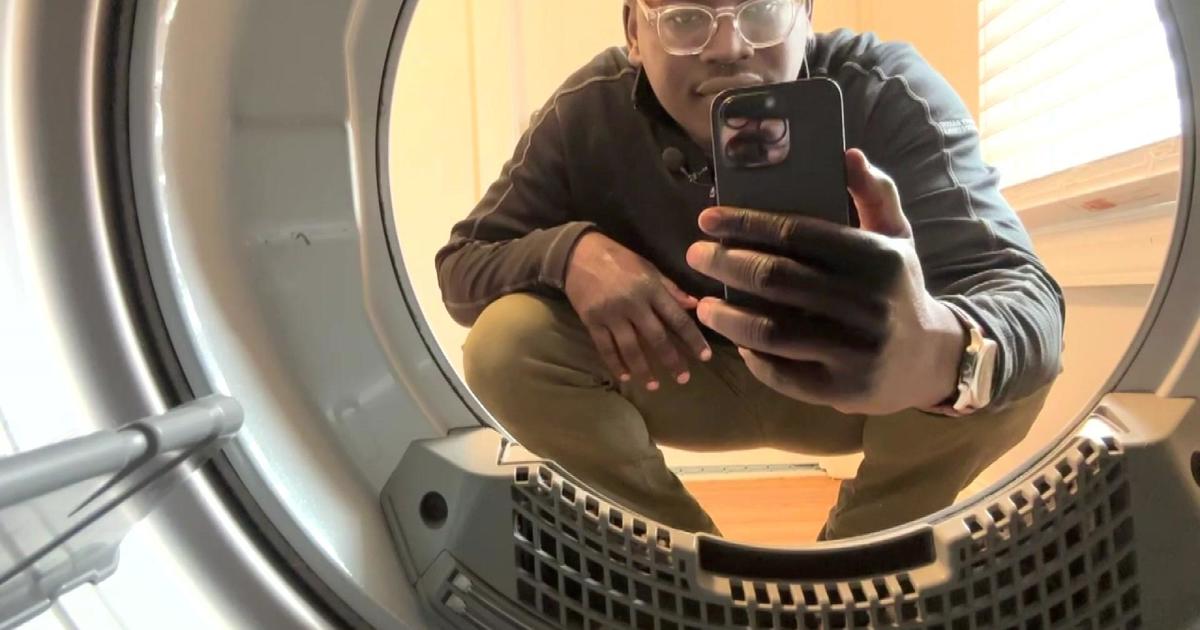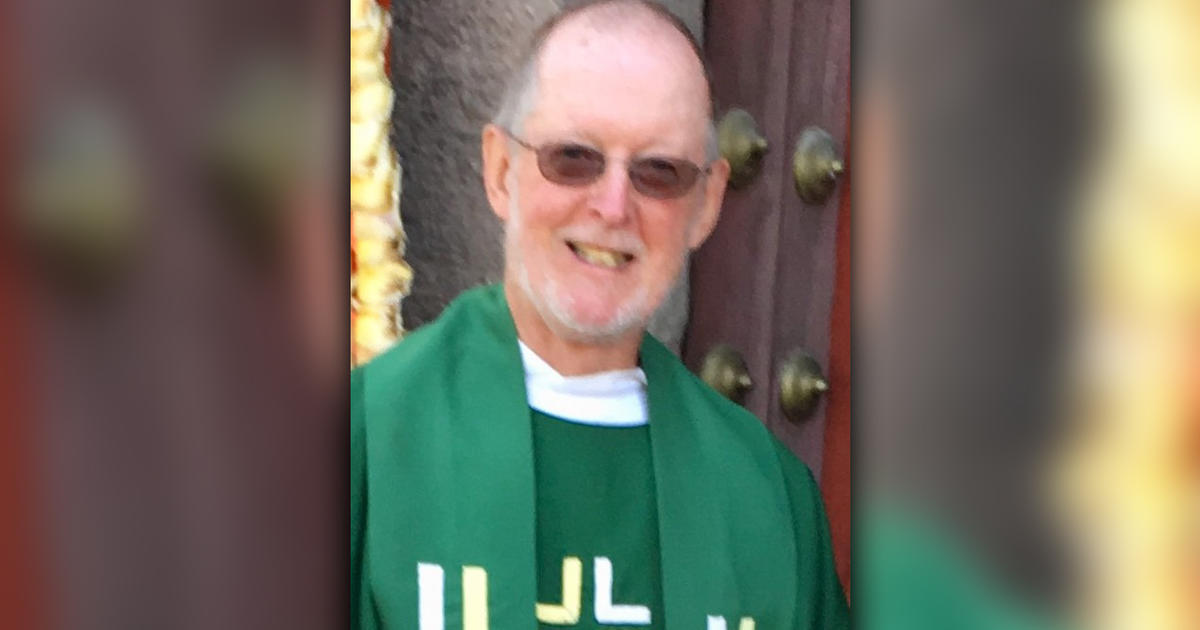The Filmmaker Who Won Sundance Made The Movie For His Dad
MINNEAPOLIS (WCCO) – When director Alfonso Gomez-Rejon started work on Me and Earl and the Dying Girl, the film that went on to conquer this year's Sundance Film Festival, bagging both the Audience Award and the Grand Jury Prize, he didn't think he'd put a dedication to his late father at the very beginning.
"I never talked about my dad before I got the job," the 42-year-old filmmaker from Laredo, Texas, said. "I only talked about him in private and with some actors…just to tell them, OK, this is why I'm making this movie."
He said he planned to bury the credit at the end of the film for fear that starting off with it would be too depressing. Indeed, the film is, in many ways, about loss and death, but at the same time it's also ceaselessly imaginative and often hilarious. Gomez-Rejon's producers, in the end, encouraged him to put the credit up front.
"And that forced me then to talk about [my father's death]," the filmmaker said. "That's one of the stages you have to go through, instead of avoiding it, you have to go into a very public place…and you are forced to talk about this stuff."
Gomez-Rejon's father passed away before the filmmaker ever saw the script for what would become his second feature, and while he fell in love with the movie's main character, what really drew him to the project was a central theme: that people's lives continue to unfold, even after they're gone.
"I was really moved by that idea," Gomez-Rejon said. "After that it just became different for me...Then I thought I could make a big movie for my dad."
Based on a novel by Jesse Andrews, who also wrote the screenplay, the film's story follows a loner-by-choice high school cinephile named Greg (Thomas Mann) and his relationship with a girl recently diagnosed with cancer, Rachel (Olivia Cooke). However, this isn't a doomed romance, like in the recent Fault in Our Stars. Instead, it's a slow-blooming friendship.
At a passing glance, the film might look like one of those high school indie feel-good flicks that only remain relevant for a summer or two. But Me and Earl and the Dying Girl has a timeless quality, palpable in Brian Eno's nuanced soundtrack and the verve of its punk rock-meets-Criterion Collection visual style. But perhaps the film's most impressive feat is that it deals movingly with issues like intimacy, loss and death without sacrificing its sense of humor or devolving into sentimentality.
Not quite a young adult film
Ever since Sundance, where Fox Searchlight bought the film for a record $12 million, Gomez-Rejon says he's been asked why he made a young adult movie. But the filmmaker never quite saw the project as a genre film.
"I just saw myself in [Greg]," Gomez-Rejon said. "It just happened that it is set in high school, and he is 17."
Narrated by the totally unreliable protagonist, the story unfolds like a college entrance essay written on Adderall. Like a charismatic little brother, Greg introduces you to a high school world where he floats by, familiar to all but close to none. He's got one real friend, Earl (RJ Cyler), but Greg refers to him only as his co-worker.
Together, the two make films, stupid but undeniably funny shorts made by lobotomizing beloved classics. Their oeuvre includes titles such as: "Eyes Wide Butt," "Breathe Less," and "Senior Citizen Kane." Greg keeps these works secret, but Rachel eventually discovers their collection. This pisses off Greg at first, but after the cancer takes Rachel out of school and she loses her hair to chemo, he and Earl decide to make a movie for her.
And this where the emotional center of the movie lies. Slowly, Greg's reluctance to embrace any sort of intimate relationship is tested. The work of making Rachel's film ruins his senior year, threatens his friendship with Earl, and shows profoundly that growing up isn't like a montage. The graph of personal progress isn't exponential, it's full of plateaus, moments where you bang your head against a wall.
So when Greg finally shows Rachel his project, it brings down the hospital. Like an emotional black hole in the middle of the movie, everything else in the film -- the jokes, the tears, the songs, the images -- condenses into it. As such, this film-within-a-film is an ode to the creative process, to how it changes people, ties them together and makes them see each other in new ways.
"The reasons we make a movies is to talk through images, by hiding yourself," Gomez-Rejon said. "And all of a sudden, you are so exposed."
A personal story
Like Greg, Gomez-Rejon made films in high school. Since he was 12, he knew he wanted to be a director. He remembers the lightning bolt striking him as his sister said in passing that one could just go to school for filmmaking at NYU.
"That was it," Gomez-Rejon said. "At that point, that was it. Then it was just about NYU, that's where [Martin Scorsese] went, so I applied to one school and got in."
While he was at NYU, and even before that, he devoured all the movies he could find at video stores or in the library. He'd watch up to four films a day, and much of what he was exposed to at NYU there pops up in Me and Earl and the Dying Girl. Things like Martin Scorsese's commentary to Taxi Driver or Les Blank's incredible making-of documentary Burden of Dreams.
Gomez-Rejoin pays homage to his cinematic heroes while sampling their works, so to speak, to lend Me and Earl certain flavors. As such, his film is a joy for film nerds. Getting the jokes or remembering the first time you heard Werner Herzog speak are all part of the fun.
After college, Gomez-Rejon went on to be an assistant to his hero, Scorsese, and later he'd direct TV shows like American Horror Story. And throughout his entire creative life, since he was just a kid in Texas, his father actively and passionately encouraged his interest in the arts.
"He'd drag us to musical theater, because we were in Laredo, we'd go to San Antonio, to Mexico City and just see theater, theater, theater, constantly," Gomez-Rejon said. "Even when we didn't want to go, we were forced to go. So it's not a surprise that his three kids turned out to be artists."
Although Gomez-Rejon has been making movies for a few decades, his father never lived to see the kind of success his son has recently found.
"I've been directing for a while now, but this makes me feel like a director for the first time," Gomez-Rejon said. "Because, this is what it means to tell a personal story...People are asking about my dad. His story is unfolding in a really beautiful way, and that means a lot to me."
Me and Earl and the Dying Girl is playing at the Uptown Theatre.
